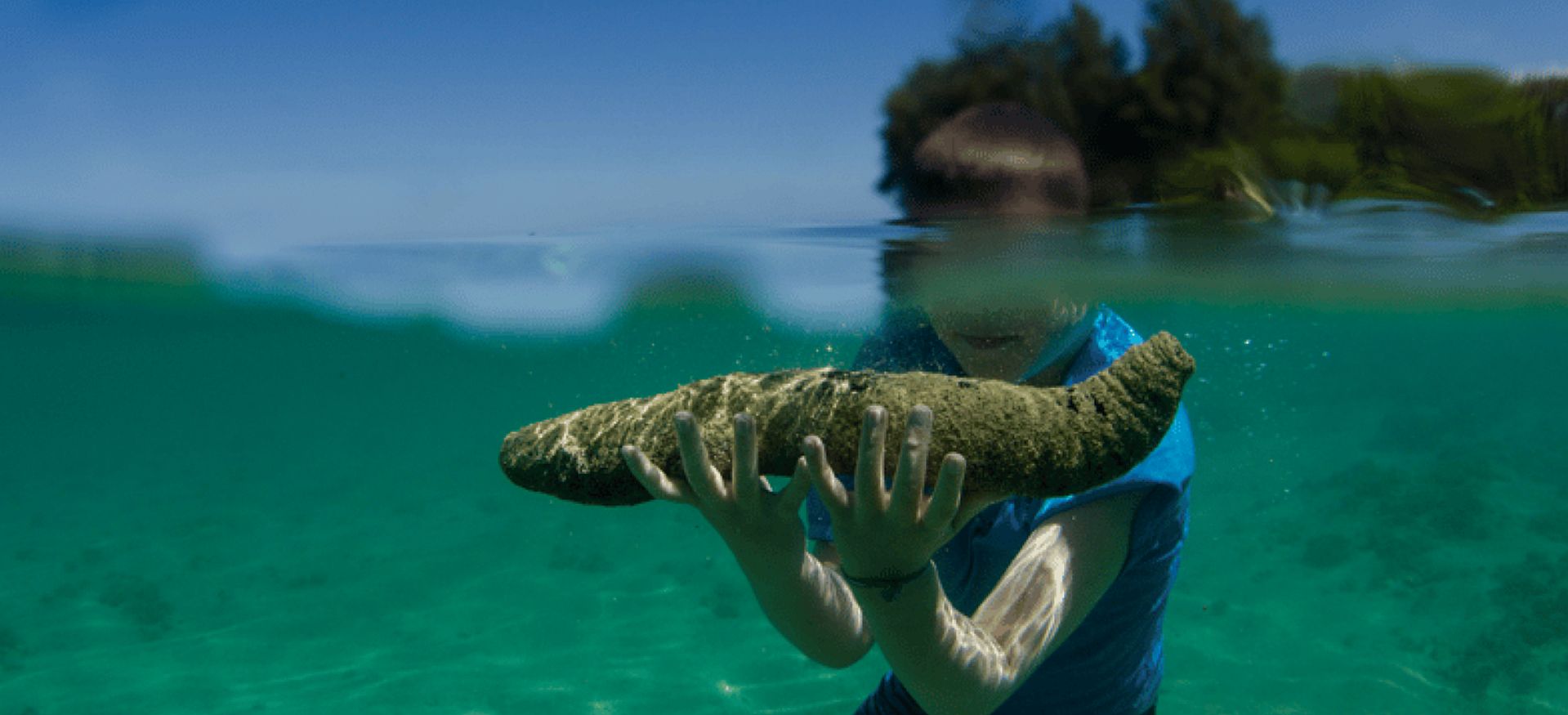While it certainly doesn’t get the media spotlight afforded to Malaysian species like tigers and orangutans, the humble sea cucumber still plays a remarkable role in the country’s marine ecosystem – and even has an impact on land-dwelling humans, too!
Hornbills and turtles and monkeys, oh my! Move over, all you celebrated icons of Malaysia’s wildlife scene! Sea cucumbers, the slimy superheroes of the ocean, might not have the paparazzi chasing after them, but don’t let that fool you. With their bizarre appearance and impressive abilities, sea cucumbers are among the true rockstars of the underwater realm. Get ready to be wowed by their peculiar lifestyles, mind-boggling regeneration skills, and surprising importance to marine ecosystems. Brace yourself, because we’re about to dive in with the team at one Langkawi resort to uncover the secrets of these unassuming yet captivating creatures.
Sea cucumbers, scientifically known as echinoderms, are fascinating marine animals found in oceans around the world, including those surrounding Malaysia (locally known as gamat). Despite their cucumber-like shape and seemingly uneventful lives, they play crucial roles in maintaining the health and balance of marine ecosystems. These bottom-dwelling creatures are nature’s clean-up crew, tirelessly scavenging the ocean floor and consuming organic matter like decaying plants and animals. This essential task helps prevent the build-up of debris and promotes nutrient recycling within the ecosystem.
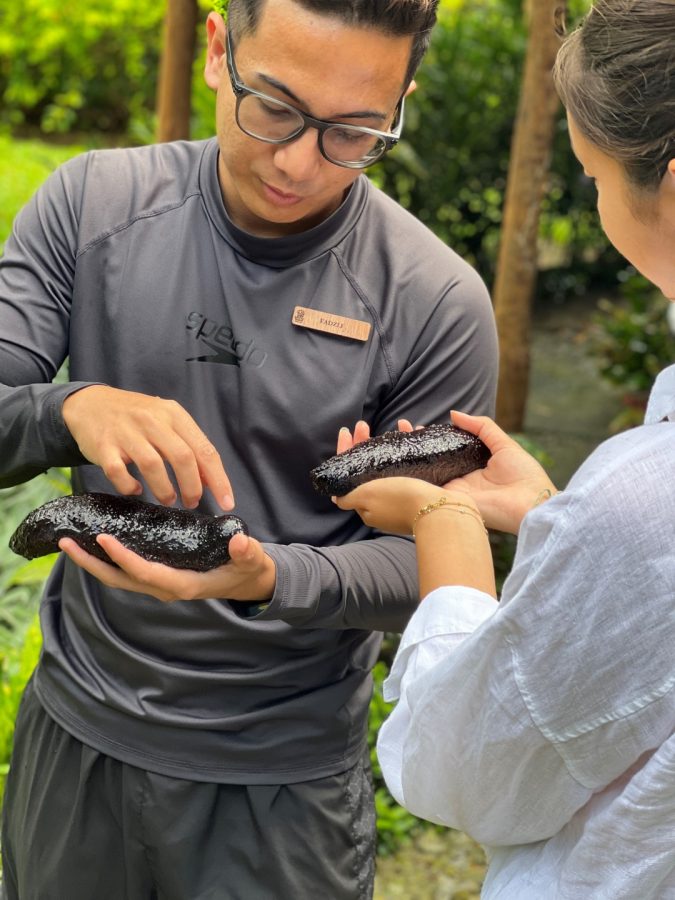
Additionally, sea cucumbers possess a remarkable (and, let’s face it, a bit horrifying) defence mechanism – the ability to expel their internal organs as a means of distracting and deterring predators. Even more astonishing, they can regenerate any lost organs within a matter of weeks. From their ecological contributions to their incredible regenerative powers, sea cucumbers continue to astonish scientists and remind us of the wondrous diversity found beneath the waves.
CELEBRATING THE CUCUMBER
So maybe it’s about time that resorts along the oceanfront pay tribute to this particular resident, and at the Ritz-Carlton, Langkawi, that’s exactly what they’re doing – not just shining the metaphorical spotlight on the species, but educating and delighting their guests in the process.
The ‘cucumber initiative’ offers the resort’s guests a chance to engage in more meaningful travel experiences during their visit to Langkawi. It’s all part of the Good Travel with Marriott Bonvoy programme, which focuses on three key areas: Environmental Protection, Community Engagement, and Marine Conservation.
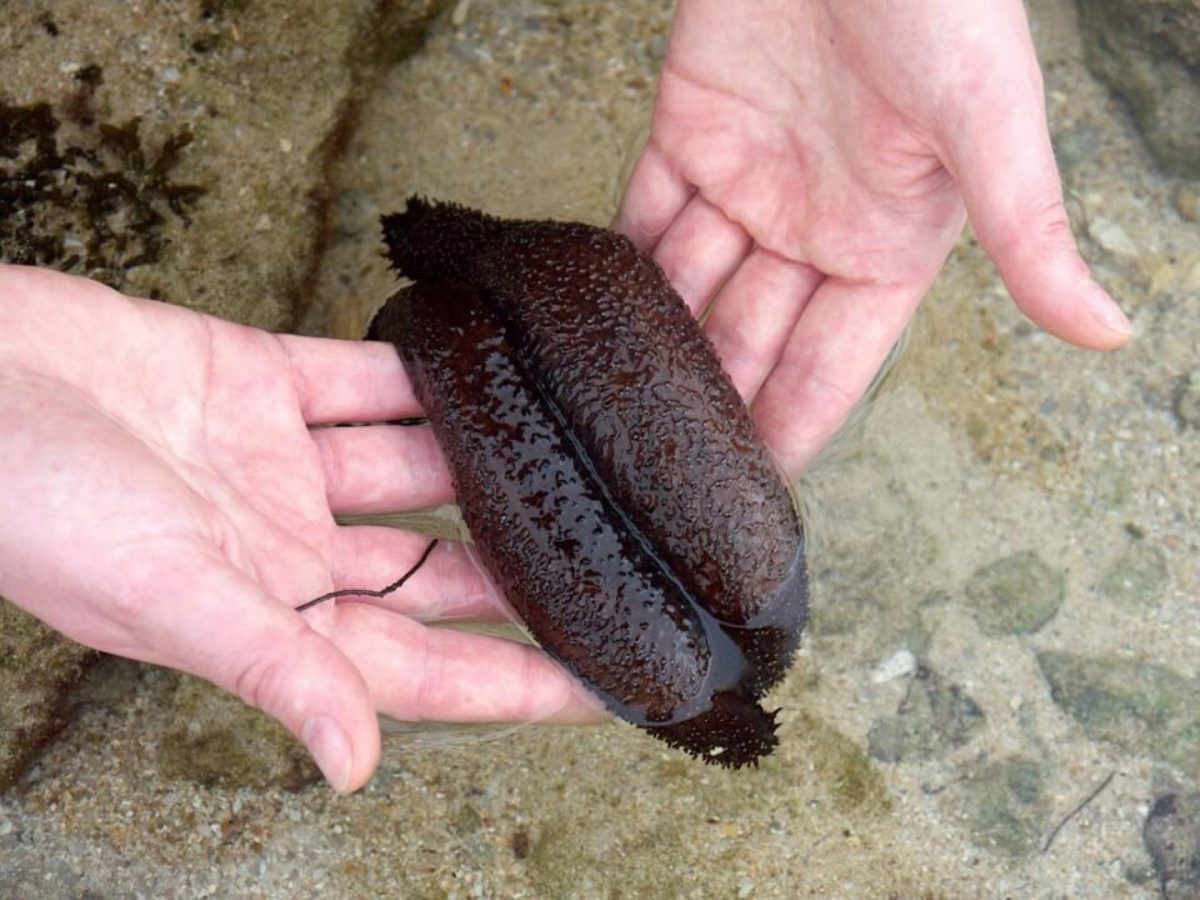
Langkawi’s locals have long relied on sea cucumbers for traditional medicinal purposes. However, excessive farming practices have taken a toll on the marine ecosystem, leading to coral bleaching. To combat this issue, guests are invited to participate in the resort’s Sea Cucumber Reproduction Project, a hands-on experience led by the resort’s in-house Marine Biologist, Mr Fadzli Luqman. We recently met him and enjoyed a hands-on introduction to Langkawi’s sea cucumbers! But the idea behind this programme isn’t just giving guests something fun and educational to do, there’s a deeper aim, as well.
One of the initiative’s goals is to support the sustainability of sea cucumbers and increase their population in the Andaman Sea using an asexual technique, which Fadzli and his team pursue right at the resort itself, where they’ve fashioned a sea cucumber nursery! (It was here we had our first-ever experience handling these animals, and with apologies to The Lion King’s Timon, it was a ‘slimy yet satisfying’ affair!)
Located at the resort’s private beach entrance, the sea cucumber nursery serves as the hub for the whole cucumber-focused initiative, available exclusively for guests of the resort. Through the programme, guests gain valuable insights into the asexual technique and even have the opportunity to release mature sea cucumbers during a kayak session in the open sea. Additionally, through the resort’s amazing Eco-Discovery centre, younger guests will learn about the animal’s significance and its impact on the marine ecosystem.
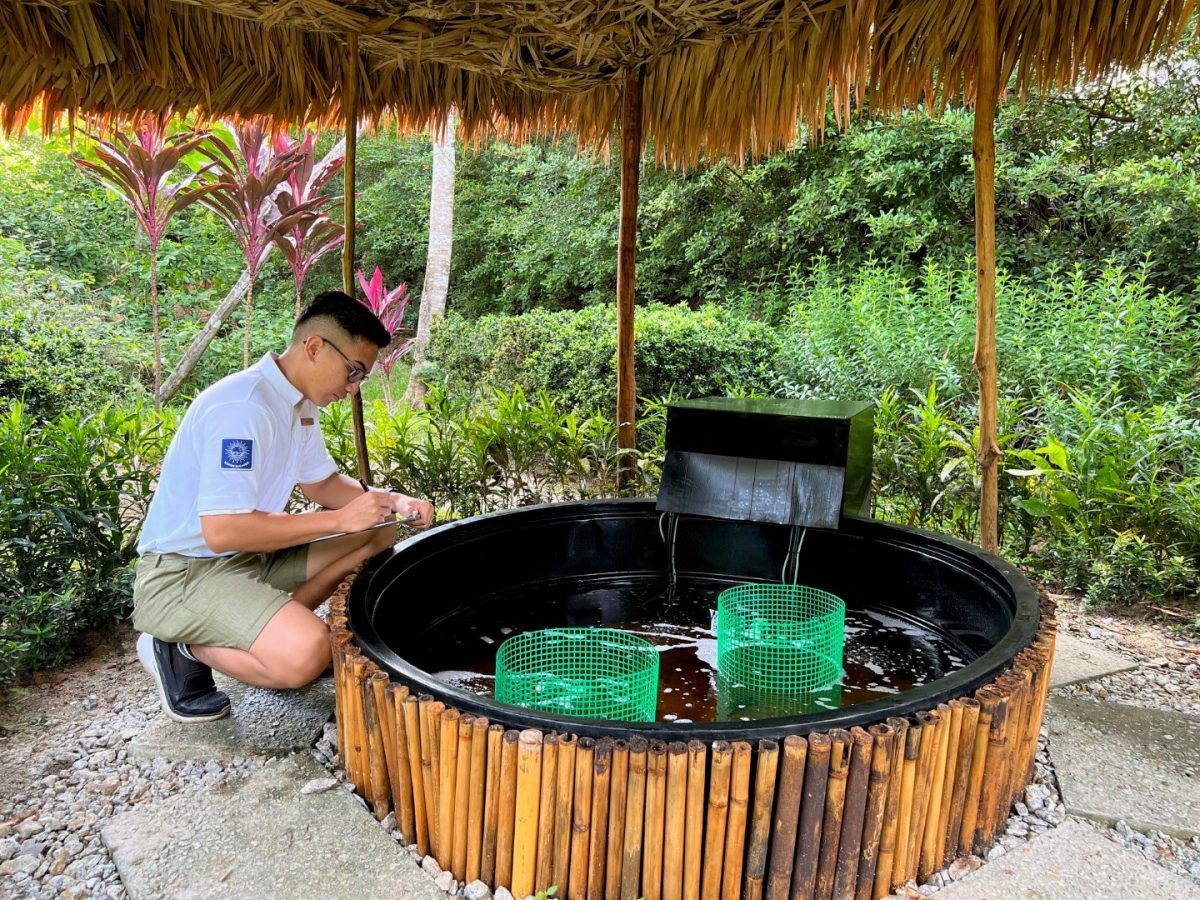
OCEAN FLOOR GARDENERS
Sea cucumbers, despite their slow and steady movements, actually play crucial ecological roles in the ocean. One of their main contributions lies in their feeding habits. As detritivores, sea cucumbers consume decaying matter and organic debris on the ocean floor. By doing so, they help to break down and recycle nutrients, promoting the overall health of the ecosystem. Their feeding activity also plays a significant role in maintaining sediment stability, preventing the accumulation of organic material and promoting water circulation.
Furthermore, sea cucumbers are often referred to as the ‘gardeners of the sea’ due to their role in enhancing biodiversity. They engage in something called bioturbation, which involves the reworking of sediments as they methodically burrow and sift through the substrate. This process creates microhabitats and oxygenates the sediments, which in turn encourages the settlement and growth of other organisms such as small invertebrates and microbes. In this way, sea cucumbers contribute to the overall richness and diversity of the marine ecosystem at the very base of the food chain.
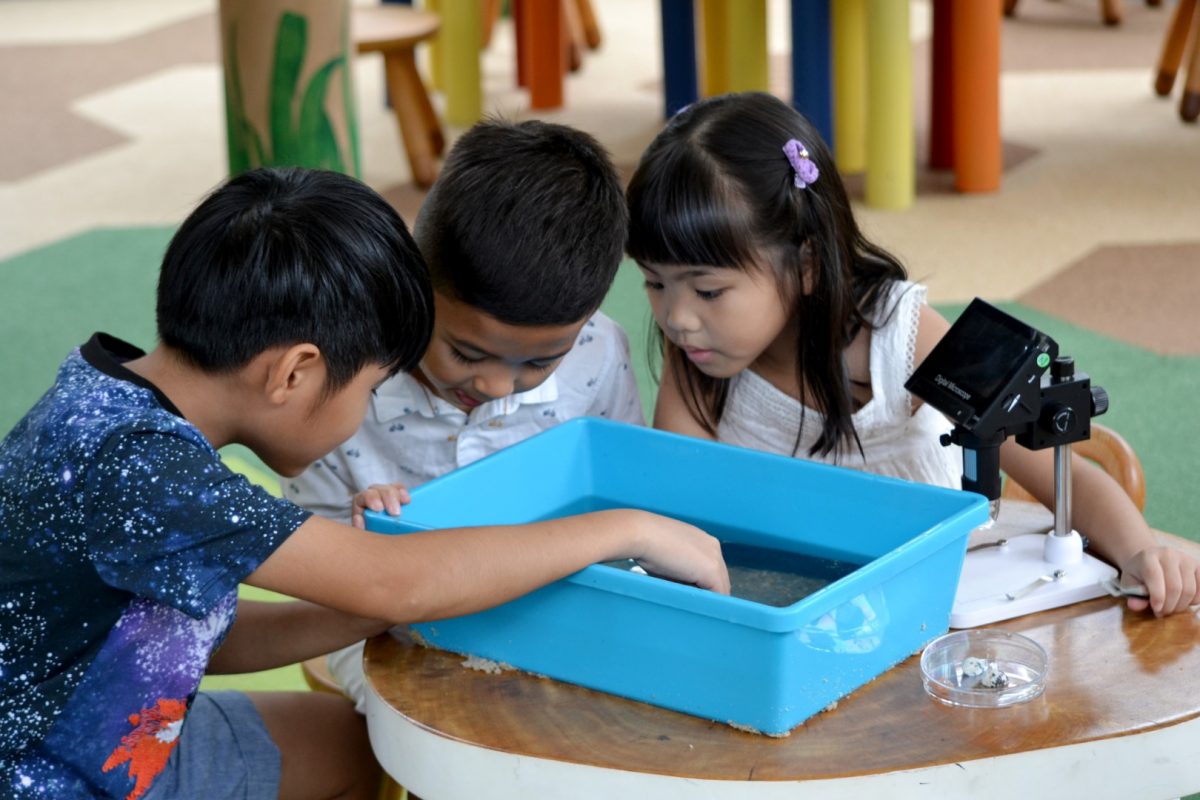
Sea cucumbers also play a role in nutrient recycling. After consuming organic matter, they excrete nutrient-rich waste which serves as a valuable fertilizer for seafloor plants and algae. This helps to maintain a healthy balance within the ecosystem and supports the growth of other marine organisms.
But these tubular critters also play a part on land! In addition to their marine-based ecological functions, sea cucumbers have economic importance, too. Here in Malaysia, they are harvested for various purposes, including food, traditional medicine, and the production of pharmaceuticals. Sustainable harvesting practices and conservation efforts are crucial to ensure the long-term viability of sea cucumber populations and to maintain their positive impact on the marine ecosystem.
Ellen Franke, General Manager at The Ritz-Carlton, Langkawi, explained the resort’s embrace of the growing trend of travellers being more environmentally conscious, noting that the Sea Cucumber Reproduction Project aligns perfectly with this ethos. “This initiative not only educates and delights our guests; it enables them to give back to the environment while enjoying their stay!”
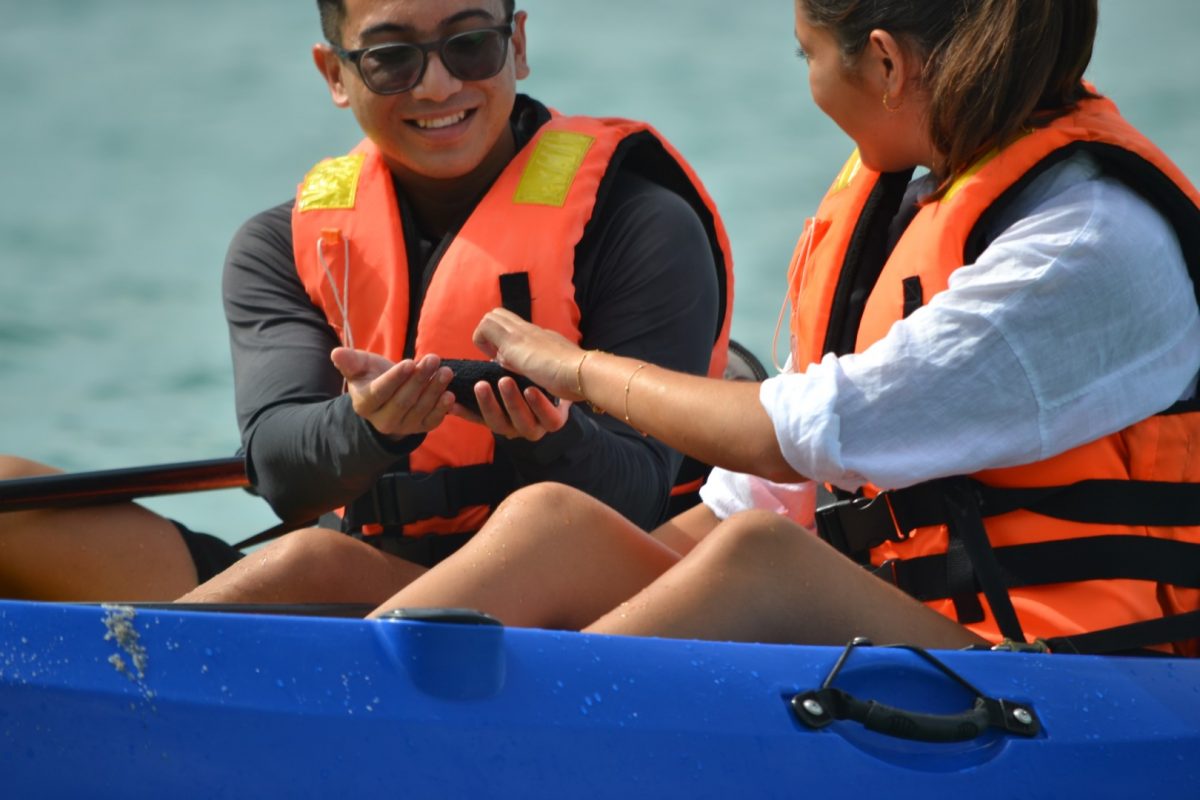
It’s great to see more and more resorts in Malaysia striving to add eco-centred components like this to their line-up of activities and pursuits for their guests. Spa treatments, water sports, and poolside lounging are all awesome, but learning more about the natural setting that gives a resort much of its appeal is a good way to add a meaningful dimension to any beachfront resort vacation! And when guests can get involved in such a hands-on way, that makes it even better. So, with all that in mind, we say: All hail Langkawi’s mighty sea cucumber!
Special thanks to Fadzli Luqman and Natasha Pack at The Ritz-Carlton, Langkawi for their help and information on this topic!
"ExpatGo welcomes and encourages comments, input, and divergent opinions. However, we kindly request that you use suitable language in your comments, and refrain from any sort of personal attack, hate speech, or disparaging rhetoric. Comments not in line with this are subject to removal from the site. "


